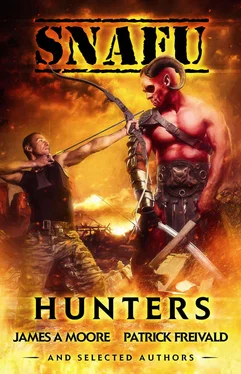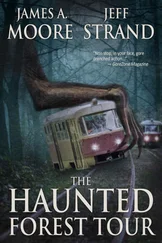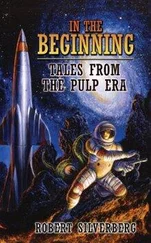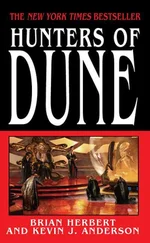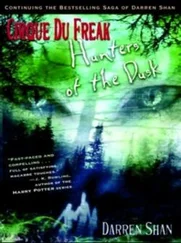“Let’s be off, then,” the Decanus said.
Silanus approached him. “May I travel with you, sir?”
Cold eyes bored into him and he couldn’t tell if the man was going to agree or cut him down where he stood. Freezing, starving, his abdomen still throbbing from the kick he took, Silanus refused to look away.
“With that thing out there,” one of the other soldiers said, “the boy won’t last the night.”
Silanus didn’t know to what they referred but didn’t care. There were a thousand ways for him to die in this forest. What was one more?
“Keep pace with us,” the Decanus finally said. “If you fall behind, we will not wait for you to catch up.”
“Thank you, sir.”
“At the next village, you’re on your own.” He turned to his men. “Move out!”
As one, they rushed into the forest, Silanus trailing behind.
* * *
They made camp an hour later inside a small cave on a hill side where two soldiers pulled brush in front of the entrance. The Ordovices had a hunk of cured boar in one of their carts and the men sliced ribbons from it and ate around the fire. They seemed uncomfortable with Silanus there and did not speak much.
The Decanus handed him a slice of meat. “Here. Eat.”
He took it and ripped a massive bite away. It was salty and tough as leather but he was glad for it. When he had finished, he asked what legion they were with. The men looked to one another. One of them grunted.
“The Hundredth,” their commander said.
Silanus laughed. “There’s no Hundredth Legion.”
“There is.” The older man handed him another ribbon of meat. “You won’t find it listed on the Senate rolls. But it exists.”
He couldn’t tell if the commander was playing him for a fool or not. He looked to the other men but they simply watched the exchange, no smiles or laughter among them.
“What’s the legion called, then?”
“Ex Nihilo,” the commander finally said.
“Now I know you’re having me on, sir. Why would anyone name a legion ‘The Nothing’?”
The Decanus stared at him and drummed his fingers on the owl emblem adorning his breastplate. “Do you know why you were to be sacrificed tonight?”
He nodded and swallowed another chunk of pork. “To appease their barbarian gods.”
“No. To appease the Droch-fhola.”
That word again. “I don’t know what that is, sir.”
Reaching into a pouch, the commander removed a small trinket. He tossed it to Silanus. It was smooth and a dingy white.
“Nine days ago, Senator Paulinus and his entire caravan were found butchered in the forest near the River Medway. Their backs had been opened and their lungs removed. The attacker had not left so much as a footprint in the snow.”
Examining the trinket, Silanus was certain it was made from bone. It was of the same figure the Ordovices had placed in their sacrificial cabinet. Long, spindly arms were folded over the chest and a jagged mouth turned upward.
“The attack matches one that occurred a month ago at a trading outpost. A dozen Romans were killed. A slave, an Ordovices woman everyone called ‘Mama’, was the only survivor. They found her in the stables. She had cut open a lamb there and painted sigils on herself with its blood. The governor’s men thought she had conspired with the attackers but, when tortured, she said it had been the Droch-fhola. She’d gone mad and kept raving about how the thing would kill us all and so they put her out of her misery.
“Upon consulting the records, we discovered that Romans had been killed in the same manner since Julius Caesar first landed here. The Ordovices and the Cornovii claim it has been stalking them every winter for centuries.”
Silanus looked at the men around the cave, hoping one would be laughing. None were. “You believe this thing is real and you’re what? Hunting it?” he asked.
“That’s what the Hundredth does, lad,” one of the other men said.
“We do the dirty work no one else is suited for,” the man beside him added.
The commander pointed to the trinket in Silanus’s hand. “To the average Roman, these things are superstitious myths and barbarian legend. But we’ve seen what the night spirits can do.” He tapped the scar on his face. “Seen them up close and personal. This thing is responsible for the deaths of nearly two hundred Roman citizens over the years and Orcus alone knows how many Britons. We’re here to put an end to it.”
Outside the cave, the cold wind howled.
* * *
The snow fell in heavy flurries from a sky the color of dead flesh. The morning had done little to brighten the forest and even less to dispel the cold. The soldiers kept a steady pace despite the biting wind, following some trail that only Crito seemed to recognize.
He had learned little of the men aside from their names. Crito, a short but stout Gaul with red hair and a nasally voice, had some kind of gift for tracking beasts like the Droch-fhola, and Decanus Marcellus had set him to the task at first light. Antonius, the tall African and only soldier who wore a beard, served as Marcellus’s second. He’d made Silanus into a kind of pack mule for the group. Weighed down with provisions, he struggled to keep pace with the unit. At least the sweat he worked up warmed him some.
There were horses, Antonius had explained, but the poor beasts refused to travel anywhere the Droch-fhola had been so they’d stabled them at a village several miles back. His breath quick and legs heavy, Silanus wished desperately they had the animals now.
Crito raised his hand and the unit stopped. The wood was silent aside from the roaring wind and they stood motionless, Silanus holding a hand over his mouth to muffle his breathing. He would have been thankful for the break but his sweat-soaked tunic quickly turned freezing. The scout eventually moved again and the unit followed.
They continued like this for most of the day, hurrying along until Crito raised his hand. They took a break around mid-day and Silanus fell asleep with his head on a saddlebag. Crispus, a handsome Roman who laughed like a horse when something struck him funny, woke Silanus by kicking him in the shin.
“Let’s get going,” Crito said. “The thing covered a lot of ground last night.”
Silanus threw the bags onto his shoulders. “How is he tracking it in this weather?”
“By its decay,” Crispus said.
“What?”
“I’m not entirely sure myself, but the way I understand it, these things corrupt what they touch in small ways,” Crispus said. “Rotted twigs, blackened pine needles, that sort of thing. Crito knows what to look for. He’s also able to smell the thing, who knows how. Says it smells like rot.”
Silanus took a deep breath but could smell nothing.
Crispus shoved a saddlebag into Silanus’s chest. “Now, get a move on.”
They continued on, following Crito until Silanus thought he would pass out from exhaustion.
As the sun set, they came across a farm. It was little more than a small house, a shed, and a fence. The structures cast long shadows onto snow red from the dying light.
The soldiers drew their weapons. Marcellus made a motion with his hand and the unit crouched low, fanning out around the fence. Crispus motioned Silanus toward a barren tree, its trunk stout and limbs reaching low like thieving hands. He hurried behind it and crouched, watching as the men approached the farm.
A man was slumped over the fence, blood frozen on his face and hanging in gruesome icicles from the wooden slats. Antonius made his way to the corpse. He took one look at its back and nodded to the rest of the men. One by one they hopped the fence, as silent as the night creeping in, and made their way toward the farmhouse. Silanus lost sight of them.
Читать дальше
